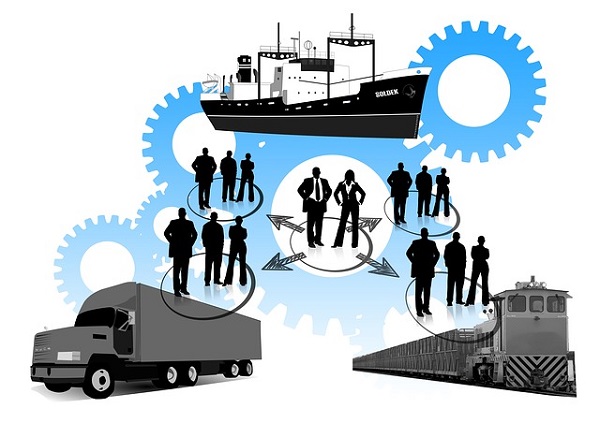
How vulnerable are these lines of supply? Will things change in the future? Are there lessons in the current emergency that industries, supermarket chains and governments need to learn for the future? Has this pandemic taught us that some items are essential and strategic? Are these at the end of a supply chain that is vulnerable because it spans continents?
Richard Meads, an Econometrician, is Rapporteur of the European Risk Forum and author of numerous papers on the impact of regulation on business and society. He stated that 80% of global trade is undertaken by the global value chain which involved between 90-100,000 corporations, and explained that this has been as a result of globalisation. After the 1970 when markets were liberalised, coupled with lowering costs, etc., have all changed the markets that were when the likes of Unilever ruled the markets 40 years ago; now, it is the likes of Apple that are the rulers. Regarding the impact of COVID-19, he said that there as a series of BOTH demand and supply shocks; he also feels that there will be a geo-political change which is currently difficult to predict. He talked about a number of business challenges:
- permanent structural shocks, e.g. the supply of medical items, and he asked would energy and telelcms infrastructures also be strengthened? Also, there is the corporate resilience decision, e.g. Jaguar's production line in Manchester ground to a halt due the non-availablity of one simple component. On demand shocks, he sees a fall in demand for business travel and aerospace. He asked if China will then become unfashionable?
- forcing habits to change, e.g. the shift to online shopping has been massively accelerated. He also talked about global market growth.
- return of the nation state, e.g. about health and a new role for the state and public procurement. He also said that it is too early to say if free trade agreements will contract.
To summarise, he stated that the changes to supply changes will be long-term, with complex strategic evaluations to be undertaken. He described it as the most important issue since the fall of the Berlin Wall. New consumer activity will flourish; however, assumptions will need to be re-evaluated continually.
George Buckingham, Principal Development Officer at NATO Support and Procurement Agency (NSPA), has worked to create infrastructure and plan logistics in developing and war-torn countries. He introduced the NSPA which purchases equipment, helicopters and trucks, fuel, ammunition, medicines and food as well as services, with all acquisitions distributed by contractors. He talked about the importance of having fall-back options in supply chains. Regarding COVID-19, their main increases have been in transporting personal protective equipment (PPE) as well as, for example, the mobile field hospital for Luxembourg. Competition for supplies also drove up prices, and travel restrictions also meant that some supplies could not be supplied. He said that risk management and litigation planning will be examined more in detail in the future, as well as new solutions such as 3-D printing and the adoption of artificial intelligence on big data, as well as new delivery options such as by drones, and equipment that can operate at greater ranges.








